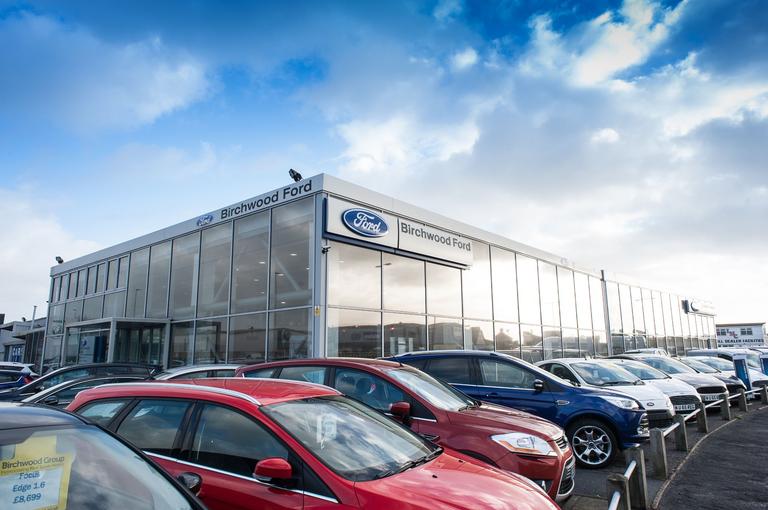
Industry professionals were asked to assess the performance of various key industry variables for the first half of 2015. It became evident that they anticipate a continuation of last year’s strong sales and lending figures.
The survey, which was conducted in January, found that the Financial Conduct Authority (FCA) is regarded as the primary force of change for this period. However, there’s a debate as to whether the regulators’ impact will be positive or negative.
Optimism is not limited to the industry as a whole, as the majority of respondents expect the amount of business their companies carry out to increase in the next six months.
62.5% of respondents said they anticipate an increase, while 31.25% expected a substantial increase in business volumes. The remainder believe that business levels will remain unchanged.
The expectations of an increase in the amount of business could explain the view that staff levels will increase.
More than six in ten (62.5%) respondents indicated there will be a rise in their company’s staff, with a further 18.75% replying that there will be a substantial rise.
How well do you really know your competitors?
Access the most comprehensive Company Profiles on the market, powered by GlobalData. Save hours of research. Gain competitive edge.

Thank you!
Your download email will arrive shortly
Not ready to buy yet? Download a free sample
We are confident about the unique quality of our Company Profiles. However, we want you to make the most beneficial decision for your business, so we offer a free sample that you can download by submitting the below form
By GlobalDataStrong consumer demand was cited as the most important reason behind the positive business expectations. Other parameters mentioned were system improvements, product upgrades, new skill sets and increased external funding.
High consumer confidence has been driving the growth in demand for vehicles – used and new – as well as car loans over the past few years.
The economic recovery has increased employment giving people more purchasing power, while low interest rates have been pushing people to save less and borrow more.
Carl Eccles, industry director at Car Loan 4 U, identified other factors which have positively affected consumer confidence. "Fuel prices and energy bills are going down, giving people a higher budget to spend, plus the relative value of second-hand cars is as good as it has been for a long time," he said.
Despite the fact that consumer confidence was considered strong by all of the survey’s respondents, slightly more than half (53.33%) of them expect a further increase in the next six months. The rest answered that it will remain the same.
This anticipation is directly related to the positive car sales and finance penetration expectations found in the survey.
Car sales
Both new and used car sales will increase in the first half of the year, according to the survey respondents. There was not a single response supporting a decrease in sales.
Two-thirds (66.7%) of respondents expect new car sales to increase, while a third of them believe sales will remain at the previous six months’ levels.
Julian Rance, head of car finance at Paragon Car Finance said: "The economy is quite benign at the moment; interest rates are going to remain where they are and there is not much strain in terms of consumer finances. We have seen 30 months of new car registrations improvement and that will continue for the next six months."
However Rance’s positive sentiments are limited to the first six months, as he expects registrations to level out after this period.
He believes that there is a ceiling to new car sales growth. "We are an island country there are only so many new cars you can buy," he said.
Similar expectations for the first and second quarters of the year were recorded for used car sales.
The majority (66.67%) of respondents believe used car sales will grow. Just over one in four (26.67%) expect sales will remain the same, while the remainder believe it will increase substantially.
Oliver Mackaness, director at Billing Finance said: "Used car demand may increase further, as petrol prices are going down and I think insurance is falling a little bit. This could result in more first-time buyers willing to buy a car, which is probably going to be a second-hand car."
It’s evident that industry professionals believe car sales will increase in the next six months, despite an anticipated drop around the election period.
Rupert Pontin, head of valuations at Glass’s, commented on this effect: "There will be a slight fall in retail demand in the lead up to the General Election in May. That’s not uncommon so I am not overly worried about that. I think in the three weeks before the election, retail buyers will be a bit less enthusiastic. Demand will come back to the market after the election."
The majority of people taking part in the survey were optimistic about finance penetration over the next six months, as 56.25% expect it to increase and the rest expect it to stay at the same level.
Eccles believes car finance penetration will soar due to consumer confidence and a rise in competition.
"Customer confidence is increasing month on month. People are spending a little bit more, but they will obviously need access to finance," he said.
"Looking at the whole economy and the sector, we’re in a very positive frame of mind. With more lenders coming into the marketplace, we will have a lot more consistent pricing and clear pricing for customers. This may encourage more people to purchase. I think penetration will increase. All these lenders are not coming to the sector for no reason. An increase in competition means customer offerings also becoming more competitive."
On the contrary, Rance believes finance penetration will be unchanged, because manufacturers will remain keen to have PCP-type deals to help dealerships sell cars.
Residual value predictions stood out from those of other variables. It was the only category that respondents do not expect to increase in the next six months.
73.33% of survey participants answered that residual values will remain constant, 20% expect a decrease, while the remainder said they expect an increase.
Motor Finance asked Pontin about his expectations on residual values for the next six months. He believes they will be broadly in line with last year.
"In terms of the used car market we’re going to see a steady marketplace," Pontin said. "Used car values will remain fairly strong. On a general basis, I would imagine that we will see a depreciation of between 1.5% and 2.5% a month on the trade value of the vehicles. That is not an unreasonable depreciation rate and it’s probably in line with what one would expect from a strong market," he said.
Rance was one of the few people expecting a decrease in values. He believes that more PCP cars will enter the market and this will lead to a depreciation in values.
"Looking back two or three years you had increased new car sales. After the credit crunch there weren’t many quality used cars around because people were keeping their cars longer. People could buy new cars cheaper than what they could get nearly new cars because you have manufacturers supporting new car sales.
As you get those cars coming back to the used car market – this year you will be getting a lot of two-to-three-year used PCP coming back into the market – there will be more used cars available which will then decrease the price you’re getting for used car sales," Rance said.
Pontin shares the view that an increased stock of cars bought after the recession will be coming into the used car marketplace.
He expects increases of 1-2% a month in volume being defleeted by contract-hire leasing companies. However, he does not expect it to impact the market in the first half of 2015.
"We’re already beginning to see a slight change in terms of the average sale price of vehicles and a decrease in the average age of vehicles. That’s the beginning of the impact of PCP from the private sale market, but it’s also a reflection of the increase in products from leasing companies which causes a lower rate. I don’t think the PCP situation will affect the UK car used market, until later in the year and probably further into 2016," Pontin said.
FCA regulation was unanimously cited as having the most potential to impact the motor industry over the first six months of 2015. However, the support of industry professionals to the changes imposed by the FCA does not seem to be so universal.
There are people in the industry who believe the regulator’s policies are to the benefit of the sector, while others feel they cause uncertainty.
Rance believes it may have a negative impact on car finance as he supports the view that it causes confusion.
"We’re still seeing confusion around regulations on how finance companies set for affordability," Rance said. "There is still a lot of differentiation between finance companies in the kind of stance they are taking to the rules that were issued in April 2014, because people are taking different views on different regulation.
"In addition to that, you get finance companies doing different things in terms of products and the rates they are offering. For instance, some people are offering free-fee deals and others aren’t; that makes it difficult for the industry. It makes it difficult for the dealers and brokers when you got different types of products and pricing being offered."
Mackaness agreed that policies have caused uncertainty, but believes that improving customer outcomes can "only be a good thing".
Affordability and treating customers fairly are identified as positive parameters of the new regulation.
Most of the respondents stated that the regulation will not have a significant effect on the existing market, as they believe only some small players will exit the industry because of the long compliance procedure.
On the other hand, many underlined the fact that the process to achieving full permission can be a barrier for new companies to enter the market.







